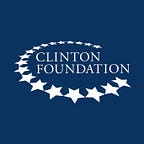Healing for health workers: Easing Puerto Rico’s emotional recovery after Hurricane Maria
Through the Clinton Global Initiative (CGI) Action Network on Post-Disaster Recovery, Americares is taking the lead on supporting health workers and the emotional recovery of communities still suffering the effects of Hurricane Maria.
By Alexia Suarez, Americares Mental Health and Psychosocial Program Manager, Puerto Rico
Long after Hurricane Maria went out to sea, calls kept coming into the emergency dispatch center in Humacao, Puerto Rico. Desperate parents with sick children lined up outside the Emergency Services office. Some carried electronic medical equipment that was rendered useless with widespread power outages.
Emergency workers on the hard-hit eastern side of the island worked nonstop in the days after the storm responding to medical emergencies, only to return home to damaged homes and fractured families at the end of their shifts. The stress was palpable, said Frank Torres, who supervises emergency medical and rescue workers for the municipality of Humacao. Three of his 18 employees lost homes; others quit. His team was among the first to participate in an Americares resilience and coping workshop.
“As well as they coped with the disaster, I saw my staff was emotionally affected,” Torres said. “I hope they can overcome everything they suffered in a healthy way.”
Cesar, an emergency medical technician in Humacao, huddled with his mother, father, sister, and cousin in one room for a day and a half until the storm passed. When it was over, all they salvaged were a few items of clothing and shoes. His parents relocated to Florida. Cesar, who stayed in Humacao to work and rebuild the family home, was one of the first to attend the Americares workshops.
“Emotionally it has helped,” Cesar said. “You get depressed. You feel alone.”
Caring for the Caregivers
Through the Clinton Global Initiative (CGI) Action Network on Post-Disaster Recovery, Americares made a Commitment to Action – a project that addresses critical issues communities face such as health or education – to expand access to mental health and psychosocial services for health workers and first responders like Cesar on the frontlines of Puerto Rico’s recovery. Through educational workshops and expanded access to focused support groups and individual counseling sessions, 5,000 health and emergency responders across the island will be better equipped to identify, assess, and respond to their own mental health and psycho-social needs as well as their patients. To date, Americares has trained more than 2,700 health workers and first responders.
“Healing for Health Workers: Building Mental Health Capacity in Post-Maria Puerto Rico” is designed to address common post-disaster symptoms including job burnout, compassion fatigue, secondary traumatic stress, and vicarious traumatization. It gives health workers the tools to care for themselves, so they can continue caring for survivors as well as work with communities to destigmatize mental illness and provide psychosocial support.
Americares is working with the Puerto Rico Department of Health, the Puerto Rico Primary Care Association, the Puerto Rico Psychology Association, Puerto Rico’s Old Age Advocacy Office and local organizations across the island to implement its CGI Commitment to Action with funding from BD (Becton, Dickinson and Company), the Center for Disaster Philanthropy, Johnson & Johnson, and the Robert Wood Johnson Foundation.
President Bill Clinton and Americares president and CEO Michael J. Nyenhuis announced the commitment at the Clinton Global Initiative Action Network on Post-Disaster Recovery meeting in Miami in April 2018. The training sessions, including workshops designed to help health workers caring for elderly patients suffering from dementia and depression, are scheduled to run through 2019.
“We are expanding the capacity of health workers and emergency responders to identify hurricane survivors with mental health needs and connect them to services,” said Americares vice president of emergency programs, Kate Dischino. “At the same time, we are helping health workers’ meet their own needs. We need to care for the caregivers as they are survivors themselves.”
Building capacity and resiliency
Even before Hurricane Maria struck, the available mental health services were not enough to meet the needs of an aging population dealing with a financial crisis. After months of recovery, health workers are eager to learn how to better care for vulnerable and elderly patients who suffered financial and emotional losses as a result of the storm. Health workers in Puerto Rico want to become more resilient and learn the signs of mental health issues so they can link patients with available services.
Even a year later, some people break down and they’re very thankful, because it’s the first time they are talking about this. Health workers are used to focusing on others’ needs. We are giving them a chance to focus on their own needs.
Americares’ Commitment to Action is one several commitments addressing mental health in Puerto Rico, and of more than 25 new commitments made through the Clinton Global Initiative (CGI) Action Network on Post-Disaster Recovery. President Clinton will host the next meeting of the Action Network from January 29–30 in San Juan, Puerto Rico.
To learn more about the CGI Action Network and to see our latest impact report, visit clintonfoundation.org/impact.
